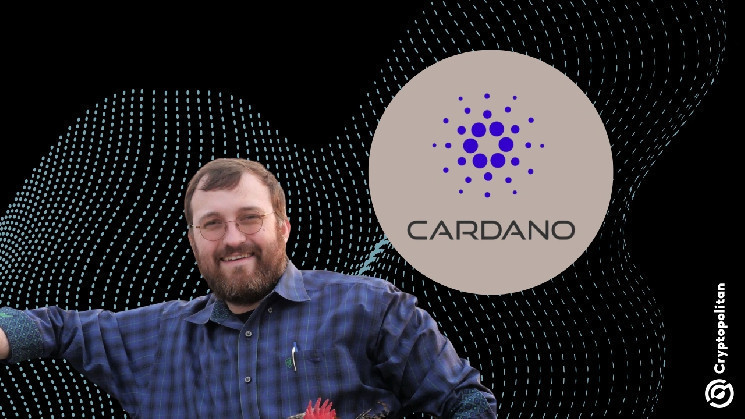Charles Hoskinson, the creator of Cardano and one of the original co-founders of Ethereum, is a misunderstood genius who took the hard road and built a blockchain on the foundations of academic research and rigorous engineering.
Critics like to dismiss him as a loudmouth; some call him a villain. However, the facts show otherwise. Charles is undoubtedly one of the sharpest minds driving the evolution of decentralized technology, and perhaps it’s time we stop overlooking that.
The early days: Ethereum’s first CEO
Charles’ crypto story started with Ethereum. In its infancy, Ethereum had a team of co-founders who didn’t exactly see eye to eye. Charles’ role was important: he was the first CEO of Ethereum.
His vision was essentially the same as Vitalik Buterin’s: that Ethereum would become a hub for decentralized applications, giving developers tools to build beyond Bitcoin’s limitations.
The drama started when the board was discussed. Charles advocated a for-profit structure to secure venture capital and scale Ethereum faster. Others on the team, including Vitalik himself, thought differently and preferred a nonprofit model.
The disagreement ended with Charles’ departure in 2014. Ethereum grew into the giant we know today, but Charles had already moved on, ready to prove that he didn’t need Ethereum to change the world.
Building Cardano: a blockchain like no other
In 2015, Charles teamed up with Jeremy Wood to launch Input Output Hong Kong (IOHK), a blockchain research and engineering company. Their flagship project? Cardano.
Launched in 2017, Cardano was Charles’ answer to what he saw as Ethereum’s shortcomings: lack of scalability, inadequate security and unsustainable governance.
Cardano’s approach was not flashy. It was methodical. Every element of the architecture was reviewed by academics and built according to formal methods. Charles has often described Cardano as “one of the greatest engineering achievements in human history.”
And he wasn’t lying. By the end of 2024, there will be more than 1,000 projects active on the Cardano blockchain, with more being added every day. The proof-of-stake (PoS) system uses a fraction of the energy that Bitcoin requires, making it a sustainable option in a world increasingly concerned about energy waste.
The Hoskinson Effect: Love him or hate him
Charles is a polarizing figure. On the one hand, his vision is respected. On the other hand, his brash attitude on social media makes him an easy target. Critics call Cardano a “zombie chain,” arguing that it lacks the activity of competitors like Solana or Ethereum.
The truth? The Cardano ecosystem is growing steadily even without the hype. Charles himself has responded to this criticism, once saying, “I think I have become a human Rorschach test. People see what they want to see.”
His outspoken character hasn’t always helped. Charles’ sharp humor and unfiltered commentary misled many people.
He has targeted journalists, competitors and even his own critics, sometimes in a tone that could be considered less than professional. An example: his joke about critics as the “paint chip brigade.”
Love him or hate him, you can’t accuse him of being boring.
Charles’ frustrations with the crypto industry are not without reason. Admittedly, the industry often favors speculation over substance, something he has repeatedly rejected. He once conducted a Twitter poll asking, “Am I a cancer to Cardano?” Of the 50,501 people who voted, 51.6% said ‘Yes’.
With a net worth of approximately $1.2 billion, Charles is financing projects that most people wouldn’t even dream of. Glow-in-the-dark plants? Bill. Attempts to detect alien life? That’s also on his list.
At the heart of his work is a belief in the power of decentralization to fix broken systems. “Crypto doesn’t want to set the world on fire; it just wants to light a flame in your heart,” he once said. Tasteless? Certainly. But it’s hard to argue with this sentiment, especially in a bull run as intense as this one.
War against bad policies
Earlier this year, Charles took his fight to the political stage. He openly supported Robert F. Kennedy Jr. as US President and called for leaders who understand crypto. “The American people deserve better leadership than what is currently being offered,” he said.
Charles didn’t stop there, criticizing the Biden administration’s alleged “deal” with Senator Elizabeth Warren to suppress crypto companies. He argued that these types of policies hurt innovation and burden legitimate businesses.
Charles proposed a ‘Bill of Rights’ for crypto users, covering taxation, consumer protection and asset classification. In November, he unveiled plans for “Operation Baseline,” a campaign to identify inefficiencies in the US crypto market and push for actionable legislation.
He also suggested Coinbase CEO Brian Armstrong as a potential “White House crypto czar” under the Trump administration, arguing Armstrong’s leadership could unify the industry.
Internationally, Charles met with Argentine President Javier Milei to discuss the integration of blockchain into government systems. His advocacy for aligning American crypto laws with global standards, such as those in Switzerland or Singapore, shows that he thinks far beyond borders.
Whether Cardano wins or not, Charles’ ruthless vision is proof that being misunderstood is sometimes the price of leadership.

